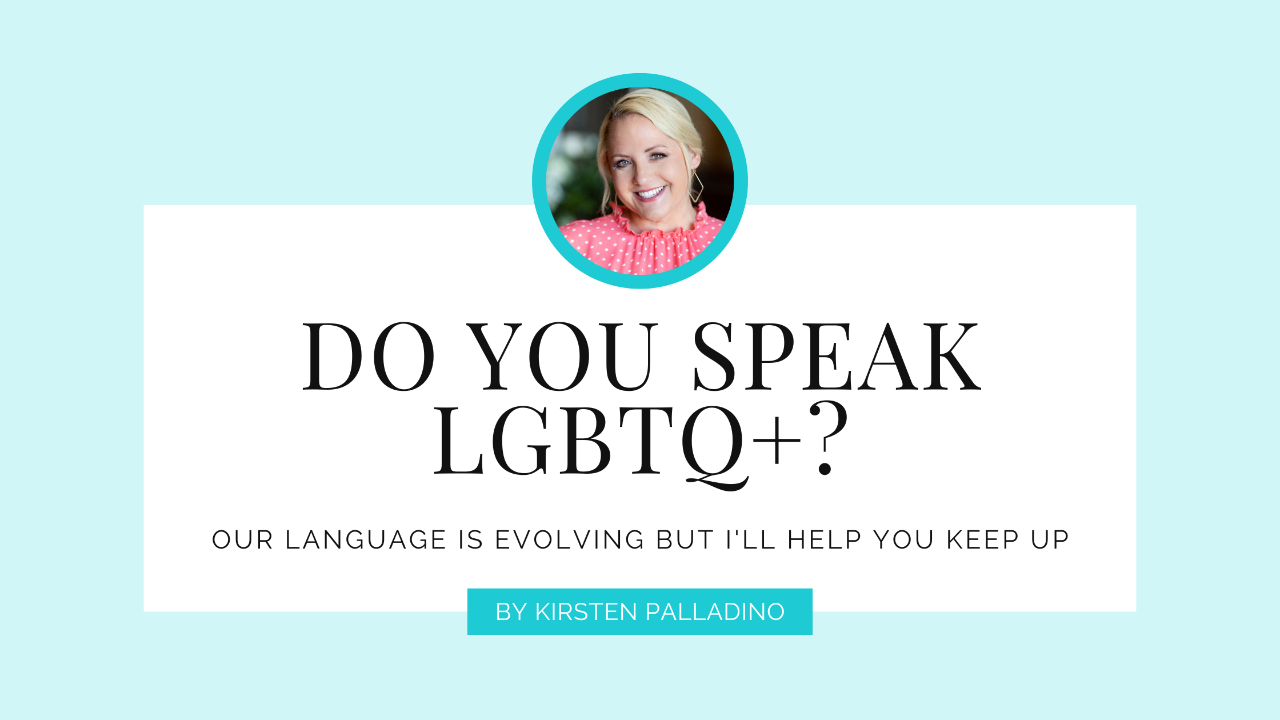Do you speak LGBTQ+?

Ciao, love champions! I just returned from a trip to Venice, Italy, where I was honored to take the stage twice in two days as the keynote speaker at the first-of-its-kind LGBTQ+ Wedding Congress. As Mo and I were preparing for the family trip (when one goes to Venice, one packs up the entire household!), they pulled out an old Italian dictionary we’d bought during our first year together: 2004. “You think this is still accurate?,” they asked me while holding it up in the air. “I guess language doesn’t really change that much.” I glanced up from my own lengthy to-do list and said, “Yep, pack it.” But that line my spouse said about language not really changing stuck in my brain.
Aside from new phrases that come along in any culture, such as google as a verb for searching the web, another word that definitely did not mean an invisible link between electronic communication devices that could connect the globe for instant conversations, languages do indeed stay relatively the same with few exceptions. One important exception is the language of the LGBTQ+ community. While the languages of regions are generally fixed, the LGBTQ+ language is fluid and ever-evolving. The primary reason for this evolution is society’s evolution of acceptance of queer and gender-diverse people on varying levels around the globe. When communities are more tolerant, welcoming and open-minded of LGBTQ+ people, we, in turn, feel safer to be ourselves, have the space to figure out who we are rather than who society wants us to be and are finding larger communities of people who identify more like us–not specifically LGBTQ+ but in the micropockets of those identities.
As our planet’s attitude toward LGBTQ+ people is gradually changing, our language, in turn, is also changing. Words we used to use even in our own community are being abandoned as we discover terms that work better, are more specific and serve a greater purpose of celebrating and affirming ourselves.
Some words and phrases that are no longer acceptable to the majority of the LGBTQ+ community include transvestite, hermaphrodite, preferred pronouns, born in the wrong body, sex change, gay as a blanket term for the LGBTQ+ community and same-sex couples as a blanket term for all LGBTQ+ couples. Alternatively, our folio of terminology is now bursting with new pronouns (called neopronouns), gender identities and sexual identities, and the reclamation of certain words such as queer that have been used to denigrate us in the past.
Just as you would research a region’s culture and language before visiting or doing business with someone from another country, consider educating yourself on the LGBTQ+’s culture and language to learn how to best communicate with and serve the LGBTQ+ community so you can provide more inclusive and affirming service. Not the language you’ve picked up here and there, but the latest and most up-to-date vernacular of 2023. Enroll in our LGBTQ+ Inclusive Certification Course to become fluent in queer language and culture.
